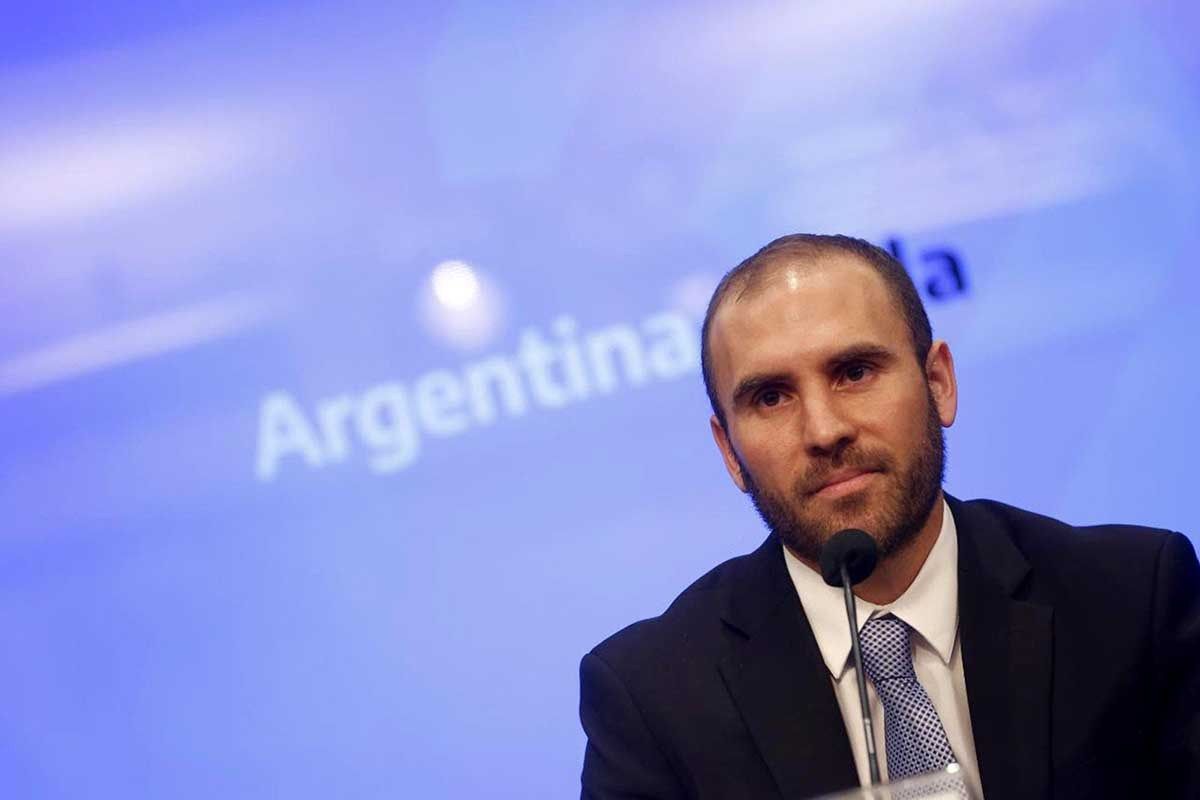
(Wall Street Journal, 30.Jan.2021) — With Argentina broke, Finance Minister Martín Guzmán is pushing for a deal by May with the International Monetary Fund to repay $44 billion in debt. To win the IMF’s acquiescence, he’ll narrow a yawning budget gap, he said in an interview on Friday.
It is the traditional path that Argentina, which has defaulted nine times on sovereign debt, has taken when its economy has hit rock bottom, as it has now during a punishing pandemic that led to a 10% economic contraction 2020. But Mr. Guzmán said his plan falls short of the draconian austerity measures the IMF imposed with other governments.
“We are using the negotiations with the IMF as an opportunity to try to break with the patterns of the past,” said Mr. Guzmán, a Columbia University-trained economist.
The twist this time around is that Mr. Guzmán and President Alberto Fernández both belong to a party that has long railed against the IMF, blaming it for Argentina’s problems. And they face a formidable opponent within the governing Peronist coalition that is marshaling lawmakers against the IMF’s belt-tightening policies.
Vice President Cristina Kirchner, leader of a far-left faction, calls for strong state intervention and public spending to preserve the purchasing power of Argentine workers, a policy that marked her two terms as president.
“Here, economic activity is driven by demand. And there is no other way to stimulate demand than through salaries, pensions and affordable food prices,” Mrs. Kirchner said on Twitter. “I tell everyone: All those who are afraid, or who don’t have the courage, there are other occupations besides being ministers or legislators.”
A deal between the administration and the IMF will require congressional approval. Since Mrs. Kirchner presides over the Senate, her consent is crucial.
Mr. Guzmán played down the threat she posed. “The coalition works together, with a shared view,” he said.
The long-term program that Mr. Guzmán has requested of the IMF would allow Argentina to extend debt payments for as much as a decade, including some $5 billion due this year. That will provide financial breathing room.
But Argentina will have to curb spending or boost revenue. Mr. Guzmán plans to narrow the budget deficit this year to about 6% of annual economic output, from 8.5% in 2020.
Mr. Guzmán said the gradual approach to stabilizing the economy is intended to spur growth by lowering inflation by about five points each year. Increasing government revenue would reduce reliance on printing money to cover spending, which fuels inflation and makes debts in dollar terms ever more expensive. Inflation hit 36% in 2020.
Economists are skeptical that Argentina can generate revenue. And they say subsidies and price controls need to be ditched.
Argentina hands out subsidies to electricity companies, heating gas providers and public transport firms to offset the low prices they are forced to charge. Subsidies for public services rose to 2.3% of gross domestic product last year from 1.6%.
Mrs. Kirchner has her eye on October’s midterm elections, when voters could punish her Peronist movement if the IMF deal leads to higher utility prices. Many of her supporters inhabit the poor, densely populated outskirts of cities like Buenos Aires, where aid workers have seen a surge of people at soup kitchens as the poverty rate rose to 45% last year.
Polls show that Argentines are increasingly unhappy with the Fernández administration, having endured one of the world’s longest lockdowns after a decade of high inflation and three years of economic contraction.
Graciela Báez, a 58-year-old small-business owner, has already cut back on buying beef and saw her income fall by more than 50% last year. She worries that an IMF deal would cause further hardship.
“I don’t think they would sacrifice the people who elected them,” Ms. Báez said, “because everyone would oppose it. It would be chaotic.”
The IMF’s managing director, Kristalina Georgieva, has said the IMF’s “commitment will continue as long as necessary for Argentina to be clear about its medium-term objectives.”
“What complicates matters is politics,” said Mohamed El-Erian, chief economic adviser at Allianz SE and president of Queens’ College, Cambridge.
Argentina has received more than 20 financial-aid programs from the IMF since the late 1950s, the latest in 2018 when then-President Mauricio Macri faced a currency crisis.
Agreeing to spending cuts will be difficult for Argentina, which has a long record of reneging on pledges to cut spending and reversing policies implemented by other administrations.
“It’s not clear that the governing coalition has a plan for the country,” says Héctor Torres, a former IMF executive director. “What’s clear is that they have a plan to retain power.”
Mrs. Kirchner’s faction would likely thwart any agreement that could undermine their bid to secure control of the lower house of congress, said Eduardo Levy Yeyati, dean of Torcuato di Tella University’s School of Government in Buenos Aires.
“They are extremely influential, and they will probably stop any fiscal adjustment measure that they think conflicts with their political objective,” he added.
Argentina reached a deal with private bondholders last year to postpone payments on an additional $65 billion in debt, but an IMF deal is essential if the South American country is to regain access to international debt markets.
While regional peers have tapped debt markets for funds to fight the pandemic—Peru recently sold a 100-year bond—Argentina has become even more isolated. Argentines have rushed to the safety of the dollar, draining the central bank’s dollars it holds in cash to about $1.5 billion. The price of Argentine debt has plunged as the government failed to outline plans to stabilize the economy and make future debt payments.
Struggling with falling demand, large companies also struggle because the central bank is unable to provide the dollars needed to service foreign debt or import equipment. Among them is state-run energy giant YPF, which is now seeking to restructure more than $6 billion in debt to fend off its first-ever default.
Among those Argentines struggling is Marta Maturano. She works at a soup kitchen and talks about rising food prices and other hardships people in her neighborhood face.
“We live day to day,” she said. “You can’t save anything.”
__________
By Santiago Pérez and Ryan Dube

